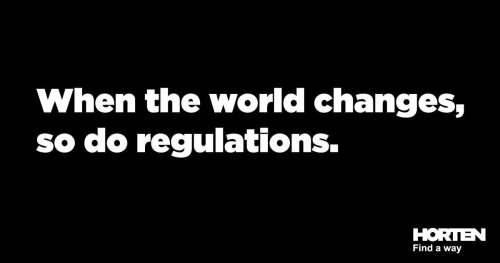Best Employment & Labor Lawyers in Denmark
Share your needs with us, get contacted by law firms.
Free. Takes 2 min.
Or refine your search by selecting a city:
List of the best lawyers in Denmark
About Employment & Labor Law in Denmark
Denmark's Employment & Labor law framework is guided by a combination of statutory legislation and collective agreements, ensuring a high standard of employment protection and strong workers' rights. The Danish labor market model is often characterized by its "flexicurity" approach, which combines flexibility for employers with security for workers. This model enables companies to adapt quickly to market changes while ensuring workers have robust welfare benefits and active employment policies.
Why You May Need a Lawyer
There are several scenarios where individuals or businesses might need legal assistance in the field of Employment & Labor in Denmark:
- Unfair dismissal or wrongful termination claims.
- Negotiating or drafting employment contracts.
- Harassment, discrimination, or workplace bullying complaints.
- Disputes over wages, work hours, or leave entitlements.
- Understanding complex collective agreements and compliance issues.
- Dealing with redundancy processes and severance packages.
In such cases, a lawyer can provide valuable guidance, representation, and support to ensure rights are protected and obligations are met.
Local Laws Overview
Employment & Labor laws in Denmark aim to balance the needs of both employers and employees. Key aspects include:
- The Employment Contracts Act: Requires all employers to provide written employment contracts.
- The Danish Salaried Employees Act: Covers rights related to notice periods, compensation, and severance for salaried employees.
- The Working Environment Act: Establishes health and safety requirements in workplaces.
- The Anti-Discrimination Laws: Prohibit discrimination on grounds such as gender, age, disability, religion, and race.
- Collective Agreements: Agreements made between employers and employees' unions, playing a crucial role in defining workplace standards.
These laws ensure a safe, fair, and equitable working environment.
Frequently Asked Questions
What are the standard working hours in Denmark?
The standard workweek in Denmark is 37 hours. However, this can vary depending on collective agreements or specific employment contracts.
What is the minimum wage in Denmark?
Denmark does not have a statutory minimum wage. Wages are typically determined by collective agreements negotiated between unions and employers.
Am I entitled to sick leave?
Yes, employees in Denmark are entitled to sick leave. The conditions and duration depend on the employment contract and collective agreements.
What protections exist against workplace discrimination?
Danish law prohibits discrimination based on gender, race, religion, disability, age, and sexual orientation. Employers must ensure a discrimination-free workplace.
Can I be fired without notice?
No, most employees cannot be terminated without notice. Notice periods are typically outlined in employment contracts or collective agreements.
What is “holiday allowance” in Denmark?
In Denmark, employees are entitled to holiday pay, typically amounting to 12.5% of their annual salary, which can be used during leave periods.
How is parental leave structured in Denmark?
Denmark offers generous parental leave, including maternity, paternity, and shared parental leave, allowing parents to balance work and family life.
What should I do if I face harassment at work?
If you experience harassment, report the issue to your HR department or use any formal reporting tools available. Consider legal advice if needed.
How do collective agreements affect my employment?
Collective agreements set many workplace standards including wages, working hours, and conditions for various sectors, impacting your employment terms.
Can an employer change the terms of my contract without consent?
No, significant changes to employment terms typically require consent from both parties and may necessitate the termination and re-negotiation of the contract.
Additional Resources
For further assistance, consider these resources:
- Fagbevægelsens Hovedorganisation (FH): The main Danish trade union confederation representing employees.
- Dansk Arbejdsgiverforening (DA): The main employers' organization, providing guidance on employer rights and obligations.
- Ministry of Employment: Handles labor policies, working conditions, and employment rights.
Next Steps
If you require legal assistance in Employment & Labor in Denmark, start by:
- Consulting with a legal professional specializing in Danish labor law for tailored advice.
- Gathering all relevant documentation related to your employment or issue.
- Reaching out to local trade unions or employers' associations for additional support.
Taking these steps will ensure you are well-prepared and informed to handle any employment-related legal matters effectively.
Lawzana helps you find the best lawyers and law firms in Denmark through a curated and pre-screened list of qualified legal professionals. Our platform offers rankings and detailed profiles of attorneys and law firms, allowing you to compare based on practice areas, including Employment & Labor, experience, and client feedback.
Each profile includes a description of the firm's areas of practice, client reviews, team members and partners, year of establishment, spoken languages, office locations, contact information, social media presence, and any published articles or resources. Most firms on our platform speak English and are experienced in both local and international legal matters.
Get a quote from top-rated law firms in Denmark — quickly, securely, and without unnecessary hassle.
Disclaimer:
The information provided on this page is for general informational purposes only and does not constitute legal advice. While we strive to ensure the accuracy and relevance of the content, legal information may change over time, and interpretations of the law can vary. You should always consult with a qualified legal professional for advice specific to your situation.
We disclaim all liability for actions taken or not taken based on the content of this page. If you believe any information is incorrect or outdated, please contact us, and we will review and update it where appropriate.
Browse employment & labor law firms by service in Denmark
Denmark Attorneys in related practice areas.
Browse employment & labor law firms by city in Denmark
Refine your search by selecting a city.














